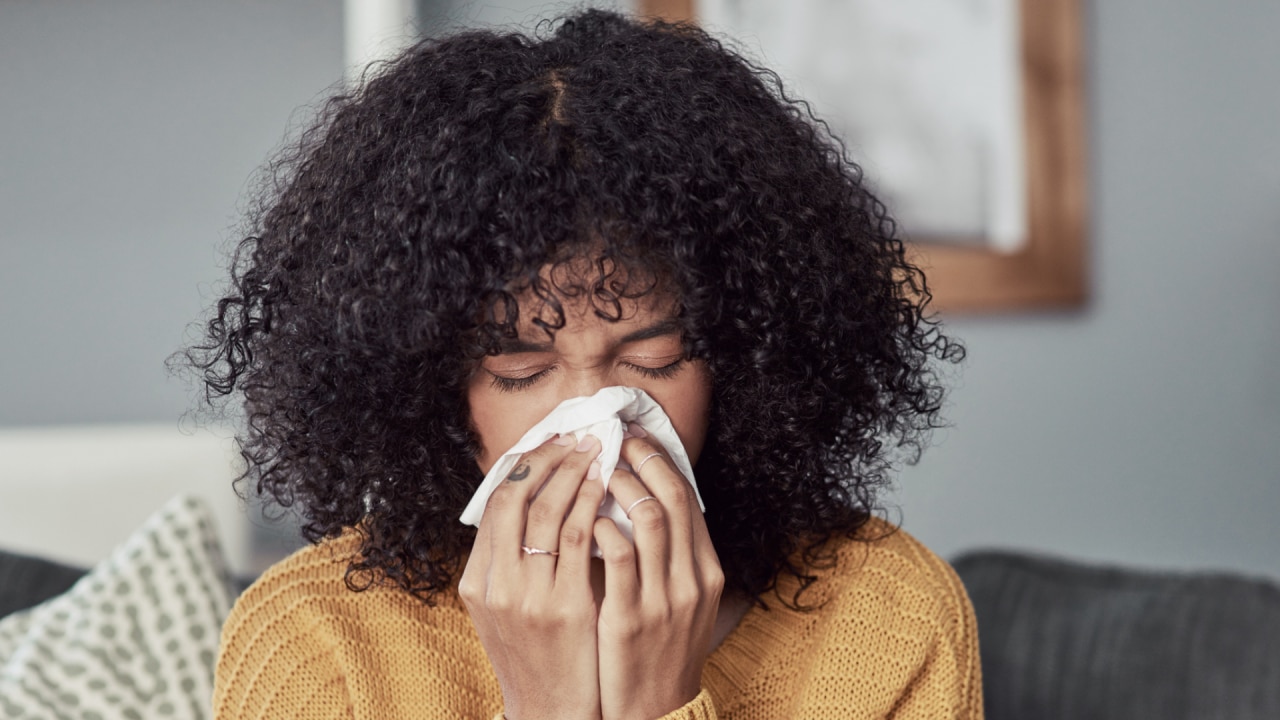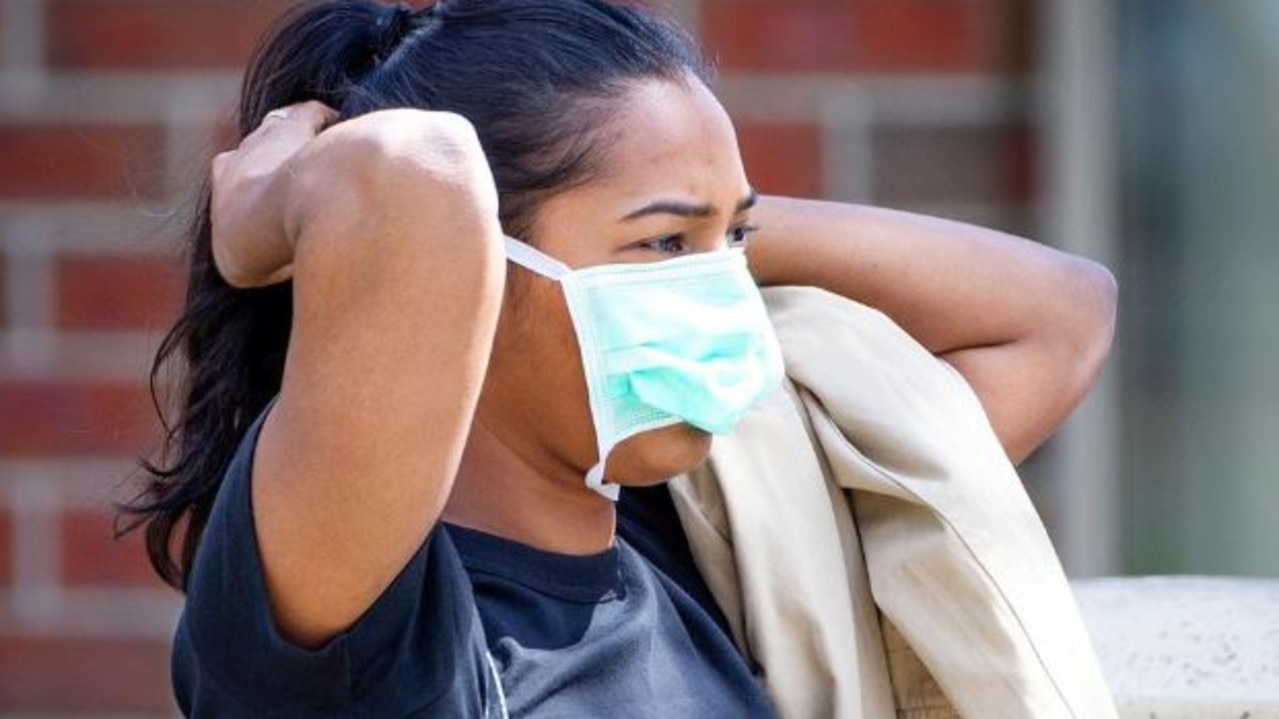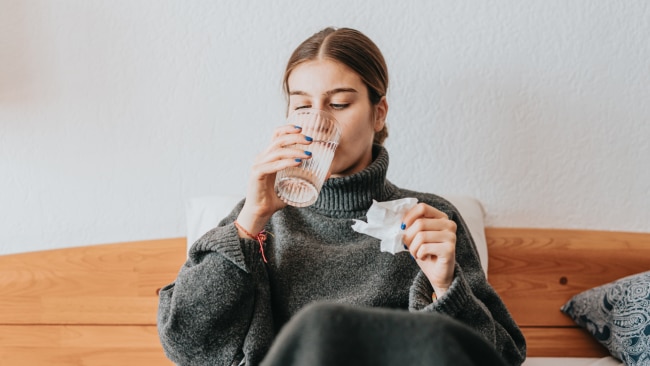So, does the flu shot actually make you sick?
All your pointy questions answered

Cold & Flu
Don't miss out on the headlines from Cold & Flu. Followed categories will be added to My News.
With predictions of a bumper 2023 flu season ahead, experts are encouraging Australians to get the latest flu shot to protect themselves, the community and the healthcare system. So what's the deal with flu vaccinations and the claims it'll make you sick?
Like going to the dentist or optometrist, getting my annual flu shot is one of those things I always planned to get around to but rarely did. Each year, I reminded myself that it’s important and good for my long-term health, but before COVID-19 hit getting the flu vaccine just seemed like a solution to a health problem that hadn’t hit me yet.
Aside from not realising just how debilitating a bout of the flu can actually be, another reason I avoided getting my annual flu shot was that I’d been told over and over again that the flu-like symptoms that can come with the vaccine negated the benefits its protection offered.
And data suggests I'm not alone. According to the Australian Immunisation Register, only 40 per cent of Australians got the flu shot in 2022, with the majority of those being in the 65 and older category.
Like what you see? Sign up to our bodyandsoul.com.au newsletter for more stories like this.
But three years into living with COVID-19, firmly in the responsible phase of my 30s and wanting to avoid another winter ruined by chaotic viruses outside of my control at all costs, I decided to roll up my sleeve and see what all the fuss was about in the hope of having a flu-free winter.
What are experts saying about the 2023 flu season?
It’s impossible to predict the future, but Professor Ian Barr of the Doherty Institute says, “One thing for certain is that there will be an influenza season, unlike 2020 and 2021 when COVID-19 and its many restrictions severely affected influenza circulation, In 2022, influenza returned with a vengeance and will again circulate widely in 2023.”
Barr adds, “When the season will start is uncertain. Prior to the pandemic, cases actually increased through May, peaked in August, and then waned in October. But this timing may be altered due to COVID-19.”
Already, flu cases are being widely reported across Australia, with some saying the symptoms experienced from the latest flu strains were more severe and longer lasting than COVID-19.
How much does the flu shot cost and is it the same vaccine every year?
The good news is that people in certain age groups or those with pre-existing health conditions may qualify for a free flu shot. Even though I didn’t meet the requirements, the visit to my local GP and injection from the practice nurse only set me back $15, which works out to be substantially cheaper than spending a week in bed with fevers, body aches, fatigue, coughing and congestion.
The flu shot also changes each year to target new strains, similar to the COVID-19 vaccines and boosters. To date, there are four main 2023 flu strains - known as the Sydney, Darwin, Austria and Phuket strains - and a number of vaccine options for the different strains.

So does the flu shot make you sick?
Like many Australians, my initial COVID-19 vaccine and subsequent boosters came with side effects. My arm was so sore I couldn’t sleep on it for 48 hours and I had the kind of fatigue that once saw me fall asleep sitting up at my desk. While the symptoms passed quickly, they were certainly noticeable and uncomfortable.
So with that in mind and the many cautionary tales of the flu vaccine making people sick, I decided to get mine on a Friday, reasoning that if I did experience any symptoms they would at least occur over the weekend.
Like most vaccines, the process was over in seconds and the nurse recommended using my non-dominant sleeping arm. After waiting ten minutes to ensure I felt well and had no adverse reactions I went back into the world and waited.
While the Department of Health and Ageing advises that common side effects of the flu vaccine can include temporary tiredness, muscle aches and soreness at the sight of the injection, I was lucky enough to avoid any real disruption to my weekend. My arm was slightly sore in the first 24 hours after having the shot, but nothing like it had been with my COVID-19 boosters. My energy levels were normal and there were no aches and pains outside of those associated with a particularly vigorous pilates class on Saturday. All in all, I was pleasantly surprised at how seamless the process was when it can be different for others.
Does the flu shot stop you from getting the flu?
While the flu vaccine doesn’t provide guaranteed immunity for everybody, it does successfully prevent illness in around 60 per cent of people. Similar to the COVID-19 vaccines, it also gives you a much better chance of experiencing less severe symptoms and the likelihood of hospitalisation, which we’ve seen hugely struggle during recent years. It also shortens your recovery time, meaning even if you do catch the flu, time in bed is likely to be a day or two, as opposed to a week.
Originally published as So, does the flu shot actually make you sick?




